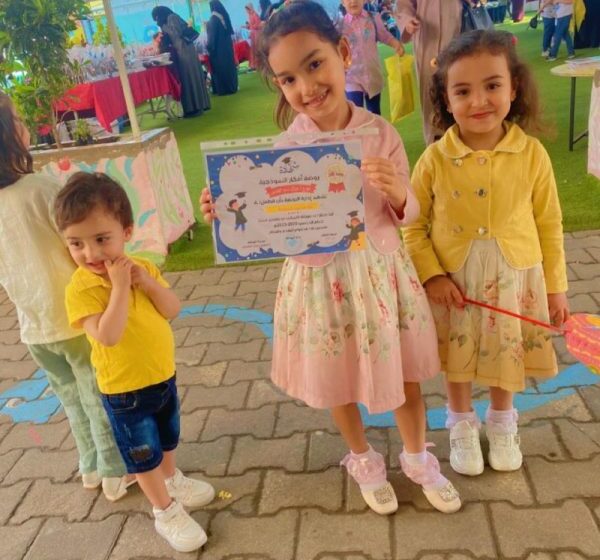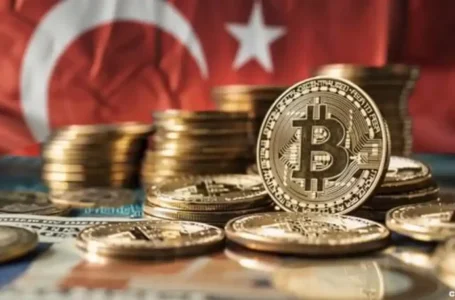Political Donations Hits Record $91M of Crypto Pre 2024 Election
They used to swim and play on the beach in northern Gaza. Now these children are wondering if they’ll ever return home


Before the war, Mohammed Hamouda and his wife, Dina, would stroll along beaches in northern Gaza, where their three young children loved to swim, eat ice cream, and ride camels on the shoreline.
Now, the sound of laughter has been replaced by that of Israeli strikes raining down on the enclave.
“They are very fearful. All day, we have to be by their side,” Hamouda reflected from Rafah, in southern Gaza, where they have fled. “They keep asking me about when we will go back home.”
But the family has no home to go back to. They recently learned that their house in Beit Lahia was destroyed. Hamouda’s youngest child, Kareem, 2, is too young to understand, but his eldest children, Ella, 6, and Sila, 4, were devastated by the loss and would not stop crying. “I couldn’t find any words to console her (Ella),” he said.
Of the 2.2 million people living in Gaza, about half are under the age of 18. As a result of Israel’s partial blockade, the life expectancy for Palestinians in Gaza was already a decade shorter than in Israel, with rates of neonatal, infant and maternal mortality more than three times higher, according to the World Bank. Since the war began, life for young people in the strip has become even more fragile.
Israel launched its military offensive in Gaza after the militant group Hamas attacked Israel on October 7, killing at least 1,200 people, including 36 children, and kidnapping more than 250 others.
I feel scared and fear the planes will bomb us, especially when my father leaves for work.”
Ella Hamouda, 9, displaced in southern Gaza
No relief for injured children
Israel’s military campaign in Gaza has demolished family homes, razed entire neighborhoods, and turned swathes of the territory into rubble-filled wasteland. In recent weeks, the Israeli military intensified airstrikes in central and northern Gaza, ahead of an anticipated ground offensive in Rafah. Families like the Hamoudas fear they will have nowhere left to flee.
Nearly 30% of Gazans are estimated to have no home to return to, with more than 60% of housing units across the strip either totally destroyed or partially damaged, the UN’s Office for the Coordination of Humanitarian Affairs (OCHA) reported in February.
Ella dreams of the day she can return to the beach with her friends, siblings Amira, 8, Yehia, 10, and Mohamed, 6, Hamouda said.
He hasn’t had the heart to tell her that Amira was killed, along with her father, Waseem El Ostaz, and his wife, Helal, in a strike on their home in Beit Lahia, in November. Hamouda felt able to tell his daughter only of the death of Amira’s parents, who were close friends of the family.
“She cried a lot, and she was very sad… She stopped eating,” said Hamouda of Ella. “She asked me to bring over those kids after the war is over and take them to the beach … to make it up to them because they lost their parents, so that she can have a role in helping them and comforting them.”
Both Yehia and Mohamed were burned in the strike, according to Hamouda. Yehia also sustained a fractured lower limb. The two siblings were displaced to a relative’s house in Deir al-Balah, in central Gaza.
Many children have sustained life-altering injuries from Israeli strikes, according to the UN’s children’s agency (UNICEF). Around 1,000 children lost one or both legs from the beginning of the war until the end of November, UNICEF reported.
Forced displacement leads to insecurity, hunger
Ayas, 8, who was disabled, and lived in an orphanage in Gaza City, was en route to a hospital in Rafah when he died, Hazem Saeed Al-Naizi, the orphanage director, said.
His condition had worsened after the orphanage was forced to flee with all 40 young people in its care – most of them children and infants living with disabilities – and bring them south. Due to shortages, Ayas couldn’t get the medicine he needed. Without it, his muscles stiffened, his convulsions and inflammation increased, making it difficult for him to eat or sleep, Al-Naizi said.
We hope that this war will end, and the suffering of the children of Palestine will end. Ayas is just a child among thousands of children who suffer here in Gaza and whose lives are exposed to danger every day. They die of hunger, disease, fear or bombing.”
Hazem Saeed Al-Naizi, orphanage director, displaced in southern Gaza
UNICEF warned in January of a triple threat to children in Gaza – not just the danger of raging war, but also of malnutrition and disease. Israel’s bombardment and restrictions on aid entering the strip have severely diminished food and water supplies, exposing the entire population to the risk of famine.
In February, UNRWA, the main UN relief agency in Gaza suspended deliveries to northern Gaza after an Israeli attack on one of their convoys, further limiting aid. Soon after, the UN World Food Programme also stopped deliveries, citing attacks.
One in six children under the age of two in northern Gaza are estimated to be acutely malnourished, according to an assessment by the Global Nutrition Cluster, which is co-chaired by WFP and UNICEF.
Ayas was displaced at least six times before his death, said Al-Naizi. At least 1.7 million Gazans have been forcibly displaced, according to the UN. Many of those – including about 610,000 children – have sought refuge in cramped shelters in Rafah, according to Save the Children.
Forced displacement, even to the homes of relatives or acquaintances, exposes children to the indignities of cramped living conditions with little privacy, according to Saeed Muhammad Al-Kahlot, a mental health specialist displaced in Rafah with his three children – Siwar, 15, Muhammad, 9, and Saba, 7.
As many as 17,000 children in Gaza are unaccompanied by or separated from their parents, UNICEF said in February — about 1% of the total displaced population. Children whose parents have been killed by Israeli bombardment – or who have been separated from their guardians – are forced to take on the role of parenting younger siblings.
“I also saw a kid who is barely seven years old, and he was getting his baby sister’s milk ready, and he was changing her diaper because he lost his mother,” said Hamouda.
Many kids who lost their parents are now playing the parent for their other siblings.”
Mohammed Hamouda, father-of-three, displaced in southern Gaza
Nearly 20,000 babies were born in Gaza from October 7 to January 19, UNICEF reported, meaning many newborns are starting life amid these dire conditions.
Robbed of an education
Dressed in a blue pinstripe dress with a frilly collar, Ella used to carry her pink and purple rucksack to pre-school – where she would play with her friend, Aya.
“She is very upset because she doesn’t know how to read or write.”
Children in Gaza are expected to lose at least a year of education because of the war, according to the UN. A recent damage assessment by UNICEF identified over 160 school buildings that were directly hit. Field reports from the agency also found that nearly four-fifths of school buildings across the strip have been damaged and at least 26 destroyed.
There is no safe place for more than 625,000 students who need schooling, UNICEF added. One in 100 teachers and one in 130 students have been killed by Israeli strikes, as of January 30.
Psychological trauma, changes in behavior
The number of children in need of mental health support has doubled to more than 1 million since the start of the war – nearly all children in the strip, UNICEF estimated.
“This situation we are going through has never been seen before in the previous wars,” he added.
Loss is a harsh and traumatic human experience. In the psychological clinic, one of the fathers, who was suffering from a panic attack, told me that he hugs his children every night before bed and firmly believes that this will be their last hug.”
Saeed Muhammad Al-Kahlot, mental health specialist and father-of-three, displaced in southern Gaza
“There is no safe place for us to take them to play,” he reflected. “I fear losing their souls and I fear that they might get injured or that they might suffer from a disability for life.
“I want my children to live like the rest of the world’s children.”











